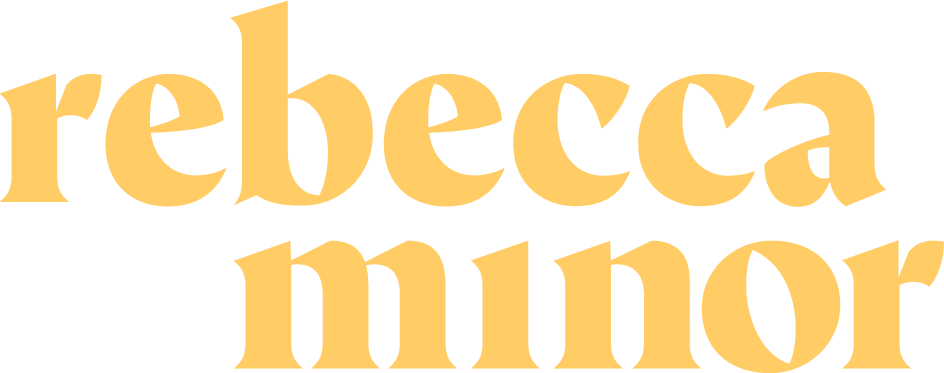What’s In A Deadname?
To use or not to use the term “deadname,” is the question.
You may have heard or seen trans folks use the word “deadname” when referring to the name they were given at birth. For some, the word choice is purposeful in its punch and for others, the term doesn’t resonate for them. When I work with parents, they have often expressed a distaste for the term and feel it is aggressive and pointed.
Defining “Deadname”
Deadname is defined as “the name that a transgender person was given at birth and no longer uses upon transitioning;” and the verb form of the word, to deadname, meaning “to speak of or address (someone) by their deadname.” Based on an anonymous survey I conducted on Instagram recently, there appeared to be a general consensus on the surface-level definitions of the word. However, a noticeable division emerged between those with lived experiences and allies. Allies tended to maintain a more superficial understanding of the word, while trans and non-binary individuals resonated with it on a much deeper and emotional level.
When asked if they use the term or not, trans folks who participated replied:
“No. For me, new name = new chapter. I don't need to kill that person, just move along.”
“Yes, it is the name I do not identify myself as beîng. I do not want to be identified as who that person was! It means prison, captivity, a lie I allowed others to believe in me.”
“It's useful to me as a verb to describe the act of using someone's old name against their wishes, and I'll use it for other people who describe their name that way, but my relationship with my old name feels more complicated than the word suggests.”
For many trans and gender-expansive individuals, there is a complex interplay between the definition of a word and its personal significance, which can make its usage more challenging to navigate.
The Name Is/Is Not Dead
Upon delving beneath the surface, it becomes evident that feelings regarding the word diverge significantly, aligning with two distinct and contrasting viewpoints: the belief that the old name is no longer relevant or significant (the old name IS dead), and the belief that the old name still holds weight and importance (the old name IS NOT dead).
“I think it assumes that that part of our life is not to be talked about which for most trans people I know, is not the case”
“I think it's appropriate. It represents a life I no longer live, in a very real way I did die in order to be reborn.”
“‘Deadname’ feels more definitive because of the permanence of ‘death.’ For people who go through significant transition and can point to a more definitive before/after feels like “deadname” is the right term”
“The given [name] is also part of the trans person. Dead is finite. Life is evolving. I prefer birth name or given name.”
Regardless of whether individuals personally resonate with the concept that their old name is deceased, there appears to be a general consensus regarding the significance of the prefix "dead." The association of death with a definitive ending is ingrained in our understanding. Therefore, for trans and non-binary individuals, the term "deadname" carries particular weight and power in its definition. It has the potential to evoke both positive and negative emotions, depending on individual experiences and perspectives.
How to Know When It’s Safe to Use- If At All?
“Everyone feels differently, I just hope people don't assume that everyone is comfortable with using terms like "deadname", because I've had more than a few other trans people and allies use that term with/about me, which makes me very uncomfortable.”
“I don’t think other terms are as powerful as deadname because it shows that we have moved on from a person who passed.”
When it comes to using the term "deadname," it is crucial to consider its potential impact on an individual's experience. It may be beneficial to use alternative terms like "birth name" or "given name" until you know how the person feels about that language. Some individuals appreciate honoring their past selves or the family who gave them that name by attaching positive meaning, such as "given." However, not everyone shares this sentiment.
The term "old name" tends to be a safer choice as it maintains emotional neutrality while accurately describing the process of evolution. This allows trans and gender-expansive individuals to attribute emotional significance to the term "deadname" based on their own experiences and preferences.
Considering the diversity of lived experiences, it is essential to recognize that feelings surrounding this topic will vary for everyone. As an ally, it is inevitable to make mistakes when affirming the people you care about. Trans individuals are not a monolith and hold different opinions and feelings on what is affirming!
Similar to asking about pronouns and consent, it is best to ask individuals how they prefer to refer to their old name. The most effective way to know their feelings about the term "deadname" is to directly inquire. Asking a simple question like, "How would you like me to refer to your old name (if at all)?" shows respect and allows individuals to express their preferences.
The key rule is to avoid making assumptions. Being an ally means being open to learning from the community and following their lead in terms of affirmative language. If you make a mistake, which is inevitable, acknowledge it, correct yourself, express gratitude for the correction, and move forward.
When dealing with a word as significant as "deadname," it is important not to make a big deal out of it. Instead, respectfully engage with the community, seek their input, and follow their guidance.
Take Action Today!
Are you overwhelmed by all the terminology? Download my free Ever Evolving Glossary of Terms!
Has a kid in your life recently come out to you? Check out my free guide!
